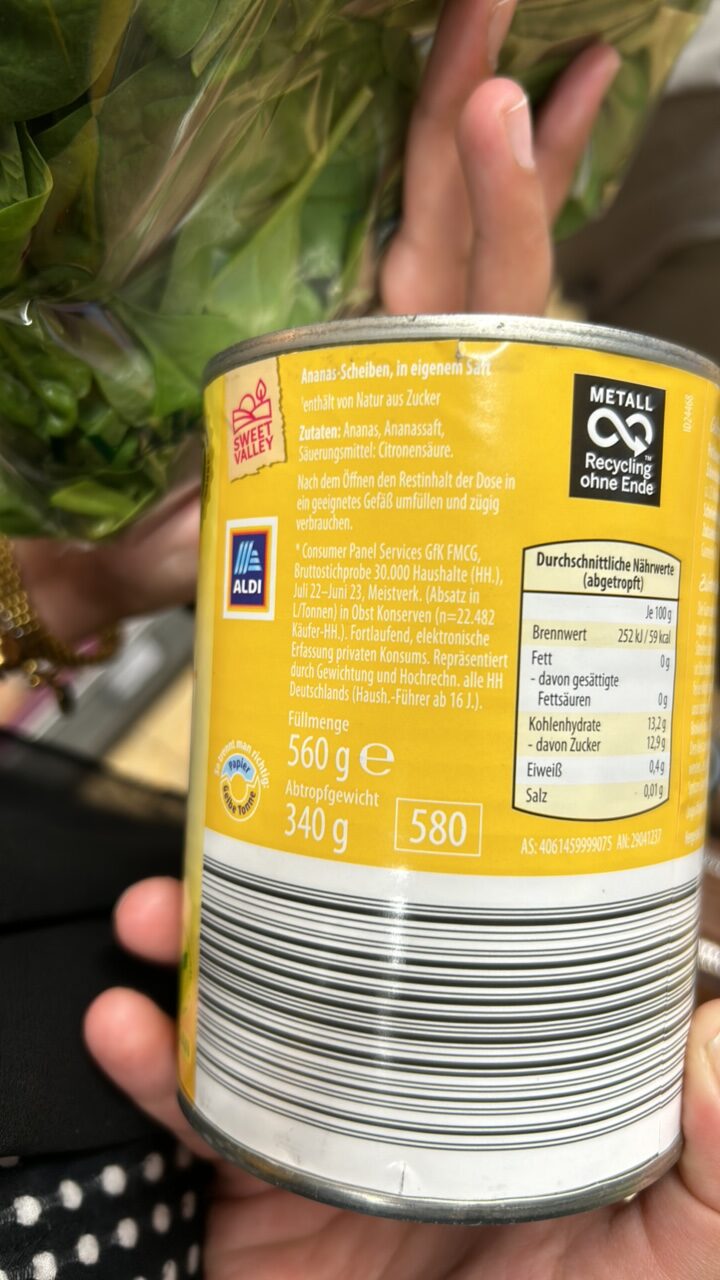
Barcode: 091412999075
unknown
HALAL
📝 Reason: The product contains ingredients that are generally considered Halal, such as pineapple and pineapple juice. Citric acid (E330) is also Halal when derived from permissible sources. The term ‘acidifier’ is doubtful without specific source information. Islamic dietary laws emphasize the consumption of Halal and Tayyib (pure) foods as mentioned in Quran 2:168.
📄 Certificates: None
Ingredients:
Details
Is the Product ‘Unknown’ Halal? Let’s Explore!
The quest for halal products can often feel overwhelming, particularly when deciphering ingredient lists and understanding their backgrounds. The product in focus, identified simply as ‘unknown’, claims a halal status. But why exactly is it considered halal? Let’s delve into its ingredients and what makes them compliant with halal standards.
Ingredient Breakdown
According to the information available, the ingredients for the product ‘unknown’ are:
- Pineapple
- Pineapple juice
- Acidifier
- Citric acid (E330)
Analysis of Halal Status
The halal status of each ingredient plays a crucial role in determining the overall halal integrity of the product. Below is a comprehensive breakdown:
Pineapple
Pineapple is a natural fruit and is generally recognized as halal. Fruits are staple halal foods as they come from the earth and do not involve any animal derivatives or harmful processes. For further clarification, Pineapple Halal Status explains its permissibility.
Pineapple Juice
Similar to the fruit itself, pineapple juice is derived entirely from halal sources with no additives mentioned that could compromise its status. Fruit juices, when made without non-halal ingredients, are completely suitable for halal consumption. You can read more about the analysis on its halal nature here.
Acidifier
The term ‘acidifier’ is more ambiguous. It is a generic term and does not specify its source. This lack of specificity is a cause for concern. An acidifier could either derive from permissible sources or from non-halal ingredients. According to Halal Monitor, while acidifiers can be found in some halal foods, without clear sourcing, they can also be derived from haram elements. More information can be found on this link.
Citric Acid (E330)
Citric acid is commonly recognized as halal, particularly when it is derived from fruits or sugar fermentation processes. Unless specified otherwise, whichis rare, it usually is obtained from halal sources. For a detailed explanation of citric acid’s halal implications, check here.
Conclusion: Is ‘Unknown’ Halal?
In conclusion, the product ‘unknown’ has a majority of its ingredients classified as halal. Pineapple and pineapple juice are unquestionable in their compliance. Citric acid generally maintains a halal status, provided its source is verified. The only uncertainty lies with the term ‘acidifier’ due to its lack of specification.
As Islamic dietary laws promote the consumption of halal and tayyib (pure) foods, individuals must exercise careful consideration and due diligence when sourcing products. The product ‘unknown’ seems to sit comfortably within halal guidelines, although verifying the source of the acidifier would solidify its standing.
To ensure a halal lifestyle, always check labels, inquire about sources, and stay informed on what goes into your products.

